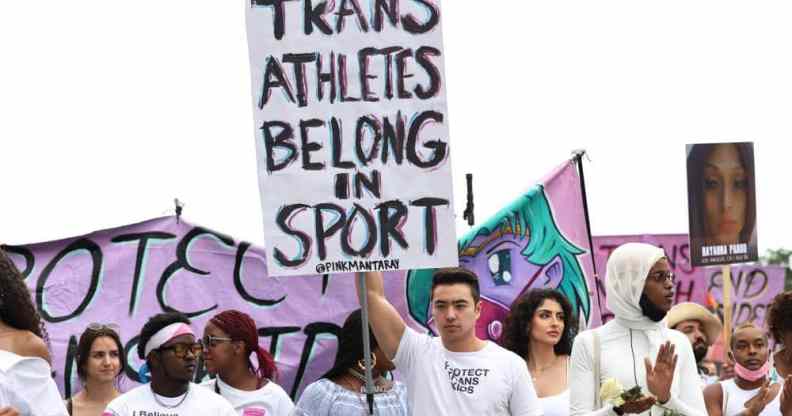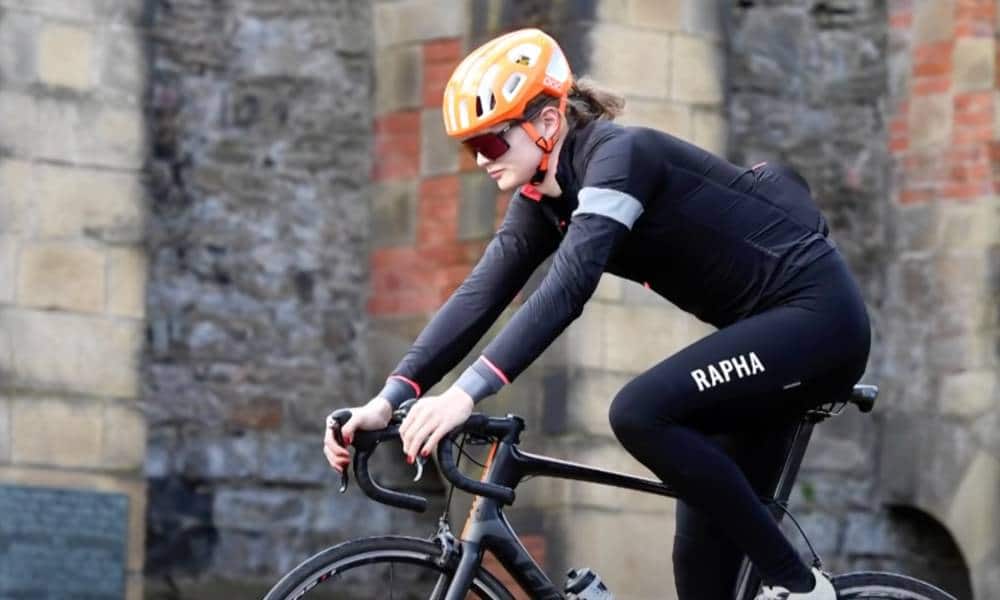Trans women have no advantage in elite sport, new report finds

A person holds up a sign that reads “Trans athletes belong in sports” during a demonstration. (Getty/Michael M Santiago)
A new report has found trans women do not have any advantages over any other women, when competing in elite sport, if existing rules are followed.
Findings from a report, which was commissioned by the Canadian Centre for Ethics in Sport, clarified that biomedical factors do not pose an advantage, but suggests social factors – like nutrition and training quality – do.
The new report is an in-depth review of all scientific literature published between 2011 and 2021 in English regarding trans women and their participation in elite-level sports.
These studies show there is little evidence to show that factors relating to male puberty – such as lung size and bone density – produce an advantage for trans athletes.
Existing rules regarding trans women in sport most often relate to the suppression of testosterone to certain low levels.
The report concluded that trans women that have begun testosterone suppression have no clear biological advantage.
“There is not one discrete biomarker that allows easy comparison of athletes’ bodies to each other in terms of performance,” the report reads.
Trans people, especially trans women, have been unfairly targeted in the elite and grass-roots sports worlds, with some even being banned entirely from competing due to anti-trans rhetoric.
The report found “strong evidence” that “elite sport policy is made within transmisogynist, misogynoir, racist, geopolitical cultural norms”.
These ‘norms’ are the outcome of a long history of exclusion of women in sports, especially women whose bodies did not conform to standards of femininity.

A number of UK governing sports bodies, such as the Welsh Rugby Union, The Scottish Rugby Union and British Cycling have all unfairly suspended trans people from participating at elite levels in present and past policies. British Cycling has allowed trans people to compete at grass-root levels but has still banned athletes from competing in competitions.
Despite new evidence emerging every year, anti-trans policies have stripped various athletes of a chance at competing.
Elite cyclist, Emily Bridges, is one example. She was not allowed to enter a women’s event at the British National Omnium Championships.
Bridges, who came out publicly as trans in October 2020, was due to compete against some of the top female cyclists in what would have been her first women’s event on 2 April (2021).
British Cycling said it was informed shortly before the event by the UCI that Bridges was not eligible to compete under its guidelines at the time.
Despite new evidence proving that biological traits from trans people pose no real threat to cisgender men and women, the community is still vilified and barred from competitive sports.
How did this story make you feel?

